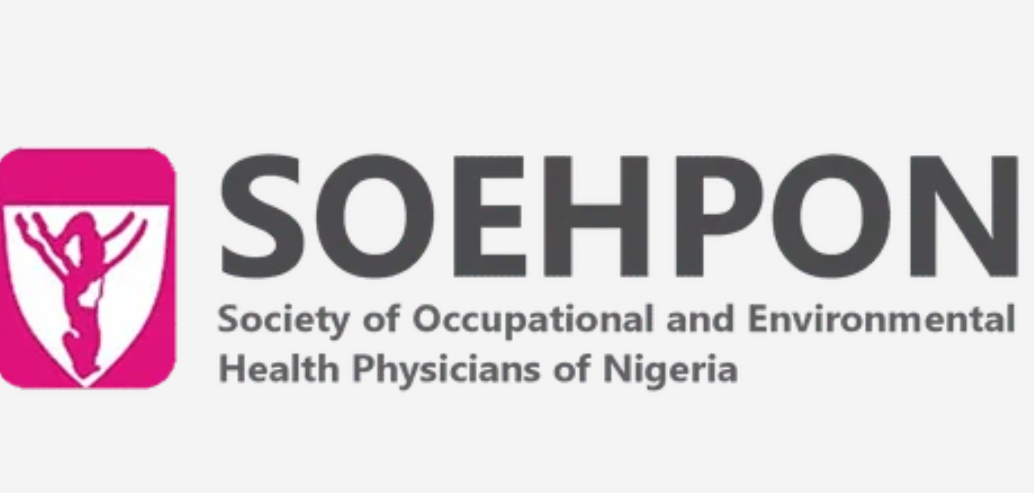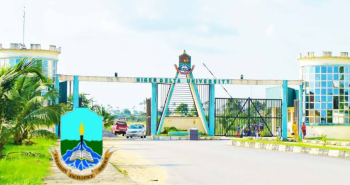Subscribe to the our newsletter to receive latest news straight to your inbox.
Hidden Dangers: Risks of ignoring occupational and environmental health safety at workplaces in Nigeria
By Clifford Ejenavi In Nigeria today, conversations about national development often revolve around politics, infrastructure, education, and the economy. Yet, one crucial factor remains dangerously neglected is the safety, health, and environment in our workplaces. Occupational and environmental health safety is not just a legal or regulatory requirement; it is a lifeline for workers and…

By Clifford Ejenavi
In Nigeria today, conversations about national development often revolve around politics, infrastructure, education, and the economy. Yet, one crucial factor remains dangerously neglected is the safety, health, and environment in our workplaces.
Occupational and environmental health safety is not just a legal or regulatory requirement; it is a lifeline for workers and the sustainability of businesses. Ignoring it has far-reaching consequences for employees, employers, and the nation at large.
The rising incidents of workplace hazards include from construction sites without helmets to factories filled with toxic fumes, Nigerian workplaces often reflect a worrying disregard for safety standards. Workers risk accidents, respiratory diseases, chemical poisoning, hearing loss, and even death.
For example, reports of collapsed buildings, oil spillage hazards in the Niger Delta, and industrial accidents in Lagos and Port Harcourt are grim reminders of what negligence costs. Each incident leaves families shattered and communities destabilized.
The economic costs of negligence and financial implications are equally staggering. When workers are injured or fall ill, productivity drops. Businesses are forced to spend more on compensation, medical bills, and recruitment of replacements. The International Labour Organization (ILO) estimates that unsafe workplaces cost developing countries billions annually in lost productivity.
For Nigeria, with its already struggling economy, the lack of occupational and environmental health safety implementation is an invisible drain on national growth.
Neglecting workplace safety does not only affect the immediate workers. Environmental pollution from poorly regulated industries such as the release of hazardous chemicals, oil leaks, and improper waste disposal affects surrounding communities. Villages near industrial zones suffer contaminated water, polluted air, and rising cases of cancers, respiratory ailments, and other chronic illnesses. Thus, occupational safety is inextricably linked to public health and environmental sustainability.
Behind the statistics lie human lives. A breadwinner who suffers an accident at work leaves behind dependents who may fall into poverty. Families are destabilized, children drop out of school, and entire communities feel the ripple effects. Beyond the economic numbers, the lack of a safety culture destroys human potential and denies individuals the dignity of a safe working environment.
The risks of ignoring occupational and environmental health safety are too grave to be left unattended. Nigerian policymakers must strengthen enforcement of safety laws, industries must prioritize worker welfare, and employees themselves must be trained on safe practices.
The Society of Occupational and Environmental Health Physicians of Nigeria (SOEHPON) and other stakeholders have repeatedly emphasized the need for a cultural shift where workplace safety is viewed not as a burden, but as an investment in human capital and national development.
Nigeria cannot achieve true development while neglecting the health and safety of its workforce. Protecting workers from occupational and environmental hazards is not only a moral obligation but also an economic necessity. As the saying goes, “a healthy worker is a productive worker.” For Nigeria, embracing workplace safety may be the missing link between stagnation and sustainable growth.
Lawmakers have an essential role in ensuring occupational and environmental health and safety in the country. Their responsibilities cut across lawmaking, oversight, advocacy, and resource allocation.
SOEHPON over the years has been advocating that lawmakers enact laws that protect workers and the environment from hazardous practices, emphasising on review and update outdated occupational and environmental health and safety laws to align with international standards.
Lawmakers must develop frameworks for penalties against industries or employers who neglect safety regulations. They must carry out oversight functions on ministries, agencies, and industries to ensure compliance with occupational and environmental health safety regulations.
Recommended Articles
-
Babcock partners UK-based firm to enhance cybersecurity
2 days ago50 views -
President Tinubu appoints Major General Olufemi as acting COAS
11 months ago358 views -
NUC grants full accreditation for all Novena University programmes
5 months ago229 views









